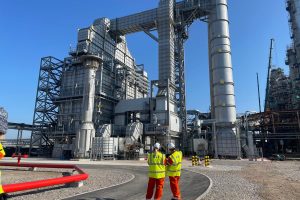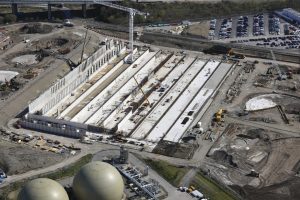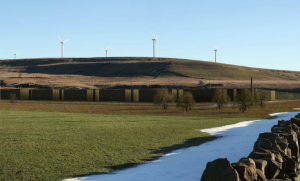RSK helps secure approval for UK’s first carbon capture enabled cement works
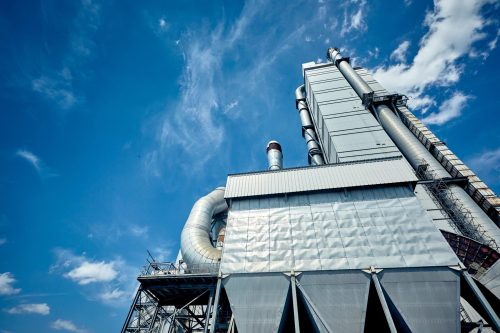
Cheshire sustainable solutions group, RSK, has supported Heidelberg Materials UK in achieving planning permission for the company’s Padeswood carbon capture and storage (CCS) project in Mold, North Wales – the first carbon capture enabled cement works in the UK – representing a groundbreaking project for the cement industry.
Planning permission was received from the Welsh Government on April 4, 2025, five months ahead of schedule.
Padeswood carbon capture and storage project, which will connect to the HyNet North West project, aims to be the first net zero cement facility in the UK and a global exemplar for the deployment of carbon capture technology at an existing cement works site.
Once operational, it will capture and store approximately 800,000 tonnes of CO2 per annum, capturing up to 95% of CO2 emissions from the existing Padeswood cement kiln.
RSK Environment principal environmental consultant, Harry Cross, said the project is the furthest advanced carbon capture project at an operational cement works in the UK by some distance.
He said: “We are proud to have achieved planning permission for this important and rewarding project that demonstrates the UK leading the way on deploying CCS in the cement industry.
“Our work here saw RSK Environment acting as environment, consents and permitting lead, including coordinating the environmental impact assessment (EIA) and project managing the development of national significance (DNS) application.
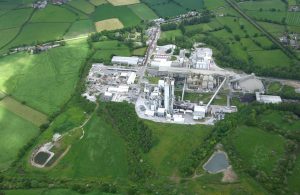
Padeswood cement works
“We were also able to draw on the skills and experience of 12 additional RSK Group businesses, including Joanna Berlyn from Stephenson Halliday as planning lead and Copper Consultancy as communications lead for the programme of community engagement and consultation.”
It is estimated that the project will create up to 500 additional jobs during the construction phase and will also create around 50 direct, long term operational employment opportunities.
The project also proposes the creation of four new ponds, nine hibernacula and 17 refugia – places where amphibians can rest during the day and escape from predators and the sun and, in winter, where they will hibernate.
It is envisaged that the planting of mixed deciduous woodland and the enhancement of grassland will cover an area of around 10.13 ha and will improve its value for great crested newt (Triturus cristatus) foraging and offer wider biodiversity benefits for other protected species.
Harry said the project is an impressive example of how Helsby-based RSK can draw on its broad range of multidisciplinary skills to achieve a major infrastructure planning application.
The combined RSK team of 13 separate businesses compiled and submitted more than 100 documents as part of its contribution to the planning submission.
Heidelberg Materials UK chief executive, Simon Willis, said: “This is fantastic news and brings our plans to create the UK’s first net zero cement works a step closer.
“Cement is essential to the UK’s transition to net zero. It is fundamental to the development of everything from new offshore wind farms to nuclear power stations, to low carbon infrastructure, and the thousands of green jobs these projects will create.”
He added: “Our Padeswood CCS project will bring significant inward investment and opportunity to the region, boosting the North Wales economy and securing the future of hundreds of skilled jobs.
“Once operational, it will also provide net zero building materials for major projects across the country and will act as an exemplar for sustainable cement production in the UK and across the globe.”


